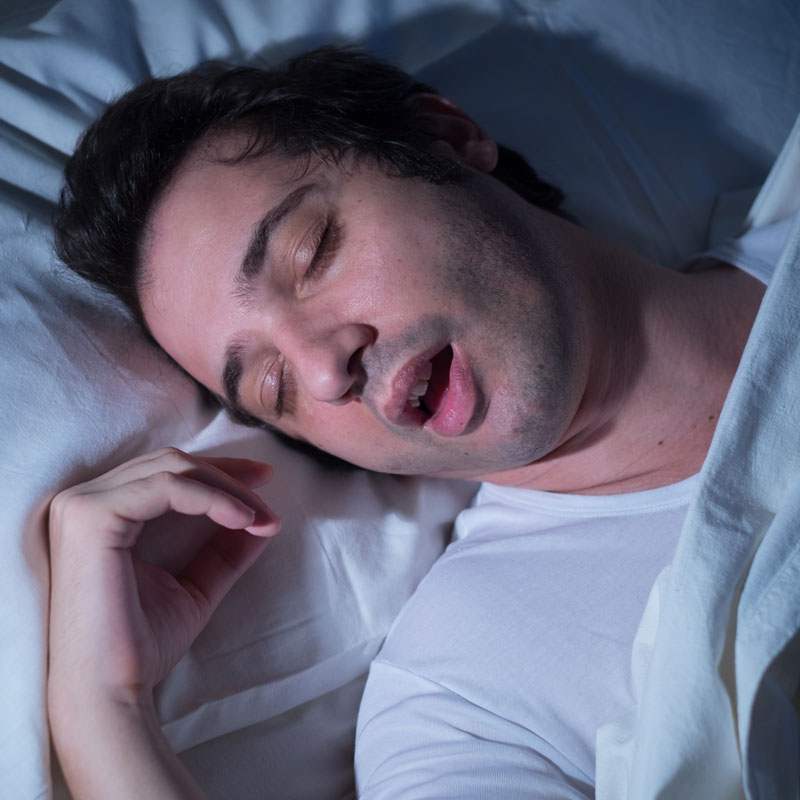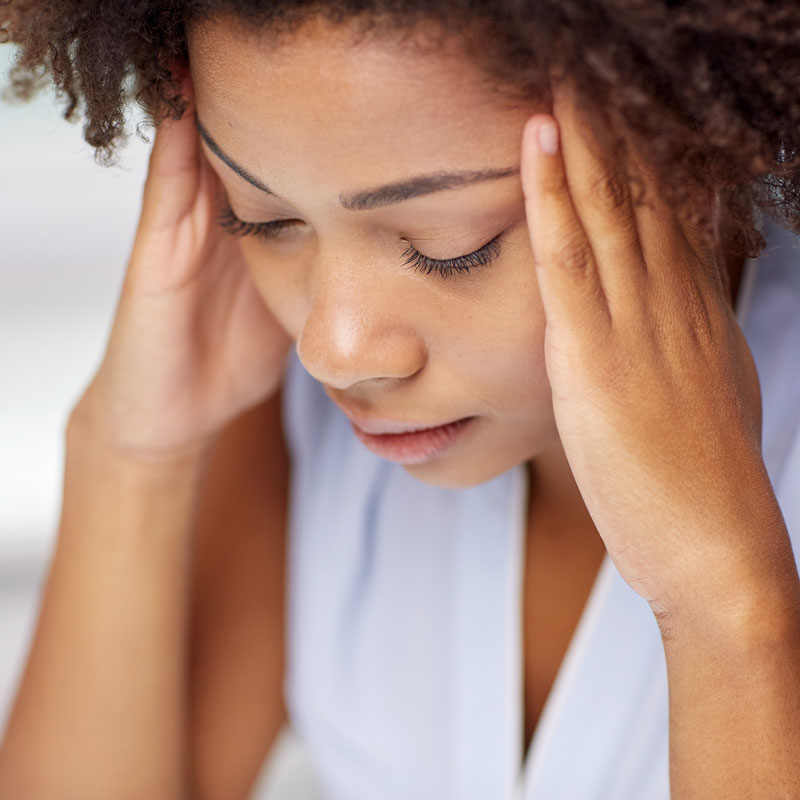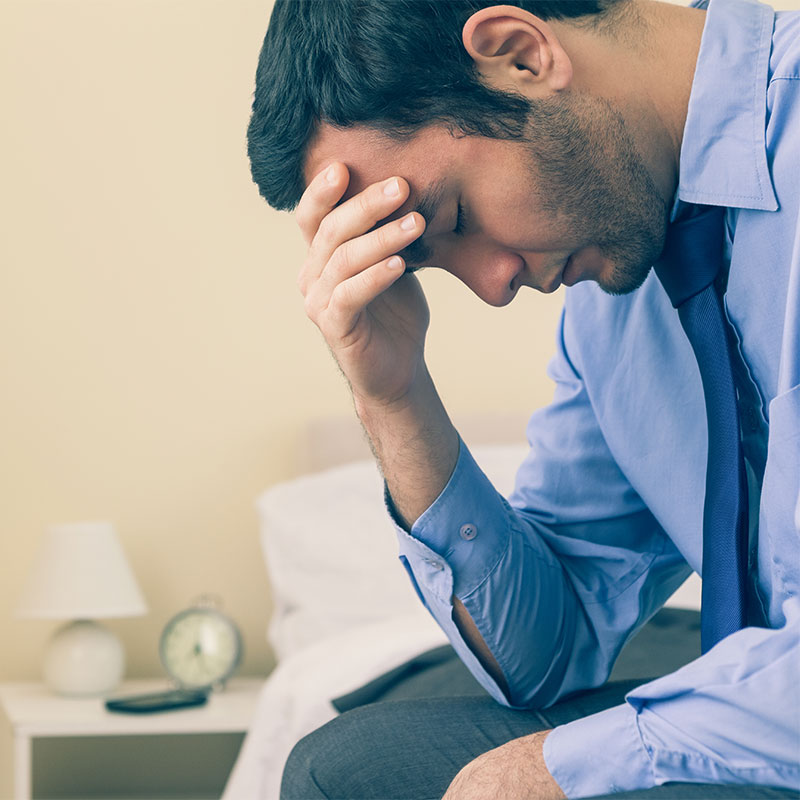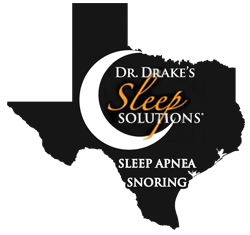
Sleep Apnea Treatment San Antonio
Whether you’ve just been diagnosed with sleep apnea or possibly undiagnosed, but researching the possibilities of having it, we know you have a lot of questions. What is sleep apnea? How do I know if I have it? What do I do next? Well, you’ve come to the right place. We specialize in Sleep Apnea and we have the information and products you need to start sleeping well again.

When you start to fall asleep, your entire body begins to relax. If you suffer from sleep apnea your upper airways will begin to collapse and result in complete (apnea) or partial (hypopnea) airway closure. When this happens your brain will wake from a deep sleep due to the feeling of suffocation and begins to inject adrenaline into the bloodstream to increase the muscle tone and reopen the airway. After a few breaths, your body will relax, causing the airway to close down yet again, and the process becomes a vicious cycle throughout the night.

Obstructive sleep apnea results in low oxygen levels and fragmented sleep. Due to the lower O2 levels and disrupted sleeping patterns, there are many negative effects on the body.

- Over 25 million Americans have sleep apnea
- 80 to 90% of adults with OSA remain undiagnosed
- Severe sleep disordered breathing is associated with a 3-fold increase in all-cause mortality risk
- Sever sleep disordered breathing is associated with a 5-fold increase in cardiovascular mortality risk
- OSA triples the risk of risk of incident hypertension over a period of 4 years
- 70-83% of patients with drug-resistant hypertension have OSA
- 70% of patients with Type 2 diabetes have sleep apnea (ASAA)
- SDB is present in 77% of men and 64% of women with a history of stroke
- 76% of individuals with congestive heart failure
- 60% of patients with metabolic syndrome
- The rate of motor vehicle accidents is seven times higher in patients with sleep apnea than in the average population
Symptoms of Sleep Apnea
The symptoms of sleep apnea can be subtle or largely noticeable. This can make sleep apnea pretty difficult to detect, especially because some of these symptoms happen to people without sleep apnea. It’s always best to make an appointment with a specialist if you have one or more of these symptoms. Sleep apnea can go undetected for a long time, and will eventually take a toll on your physical and mental well-being.

When you have sleep apnea, your breathing stops often over the course of the night. Because you’re not receiving sufficient oxygen, causing carbon dioxide levels to increase in the blood. This affects the nervous system as well as blood flow to the brain and can lead to headaches, as well as memory issues and mood swings.

Sleep deficiencies are impairing your sex life. This is a difficult topic but one that demands our attention. Johnny Carson once said: “I knew a man who gave up smoking, drinking, sex, and rich food. He was healthy right up until the day he killed himself.” All joking aside, dealing with impotence is no laughing matter. It’s an embarrassing, uncomfortable, frustrating position to be in. Physically, you may be fine. The plumbing, as they say, is working, but there is no desire. Your libido is all but non-existent.

Sleep apnea takes toll on your body and your health, causing the following symptoms:
- Excessive Daytime Sleepiness
- Increased risk of cardiovascular problems (heart attack, hypertension, congestive heart failure)
- Increased risk of stroke
- Increased risk of motor vehicle accidents
- Weight gain from increased insulin resistance and glucose tolerance
- Decreased mentation
- Impotence
- Mood swings and irritability
- Morning headaches
- Decreased life expectancy if untreated
Health Risks of Sleep Apnea
Besides the inconvenient symptoms of sleep apnea, there are extreme health risks if the disorder goes untreated. This is why we take our work seriously here at Dr. Drake Sleep Solutions because we know our sleep therapy devices really could be the difference between life and death for some.

Obstructive sleep apnea more than doubles the risk of stroke in men (NIH 2010). Snoring also shows a high correlation with stroke – in fact, the likelihood of a stroke is greater in patients who snore than those who smoke (Spriggs 1990). Patients with moderate to severe OSA have a higher incidence of silent strokes than those with milder or no OSA (Minoguchi 2007; Nishibayashi 2008). Multiple mechanisms are likely implicated, but one of the primary contributors is systemic inflammation – with OSA patients consistently showing elevated levels of TNF-alpha, Interleukin-6, CRP, and increased carotid intima-media thickness (Minoguchi et al 2007).

Body Weight is difficult to control in the presence of sleep apnea, because OSA triggers a dysregulation in the serum leptin levels (a critical hormone controlling energy expenditure, body weight and fat distribution). A 10% weight gain increases the risk of moderate to severe OSA by a factor of 6 and is associated with a 32% increase in the AHI index (Peppard et al 2000). Effective CPAP treatment tends to restore leptin concentrations and shift the hormonal control of body weight toward a normal balance (Phillips et al, 2000).

Hypertension in patients with OSA is due to the repetitive episodes of apnea, hypoxia and arousal during sleep, which maintain the body in a state of constant stress and sympathetic drive activation. In time this leads to a dysfunction in normal regulatory mechanisms, resulting in persistent high sympathetic drive which is present even during normal daytime wakefulness and breathing (Kato et al, 2009). CPAP treatment as well as effective treatment with oral appliances have been shown to reduce OSA-associated hypertension to a similar degree (Van Haesendonck et al, 2015, Wilcox et al, 1993). 30-40% of patients with high blood pressure and a striking 83% of patients (96% of males) with drug-resistant hypertension have been shown to suffer from obstructive sleep apnea (ASAA, Logan et al, 2001). In such cases, where 3 or more anti-hypertensive medications fail to reduce the blood pressure below 140/90, a sleep study should be strongly considered.

- Diabetes and Insulin Resistance
- Systemic Inflammation
- Cardiac Arrhythmia
- Cardiovascular Disease
- Brain Changes
- Neurocognitive Effects
- Dementia
- Pregnancy Conflicts

